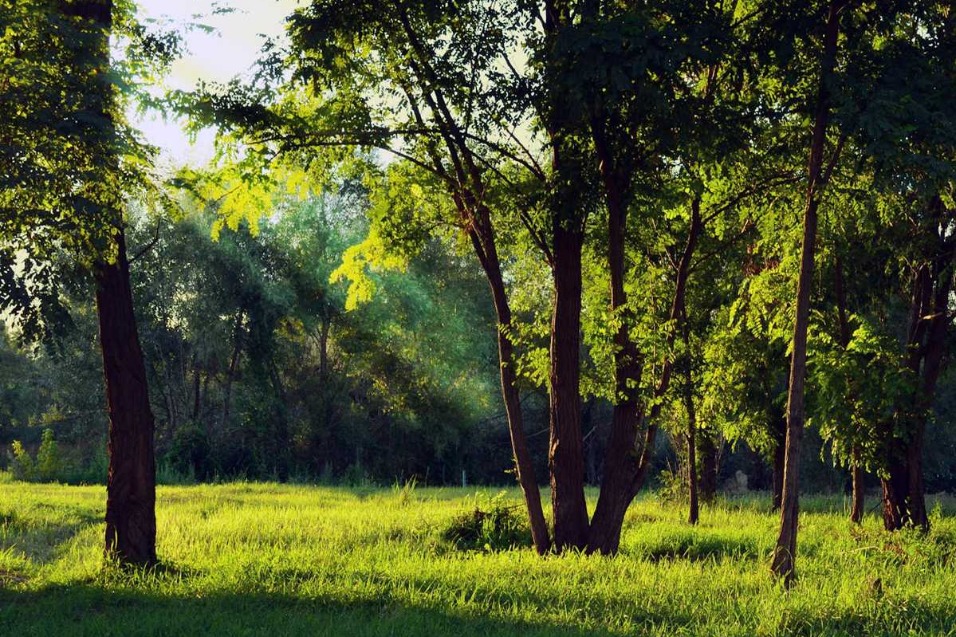用水沖不掉殺蟲劑!專家教你如何徹底清潔蔬果 Washing your fruits and veggies isn't enough anymore. Here's how to kill pesticides
中國日報網 2024-08-14 17:36

你知道嗎?只用清水沖洗無法去除蔬果上殘留的農藥,而長期攝入農藥會有致癌風險。專家指出,去除蔬果上的農藥最有效的方式是削皮,如果無法削皮,則應該用鹽水、小蘇打水和稀釋的醋來清洗。

You probably know better than to eat a strawberry straight from of the carton without washing it. Fruits and veggies are often coated in harmful pesticides to ward off pests when they're growing. These chemicals are not exactly safe for human consumption either.
你可能很清楚,買來的草莓不能不洗就從盒子里拿著吃。水果和蔬菜在生長過程中常常被噴上有害的農藥以抵御害蟲。實際上,人類攝入這些化學物質也并不安全。
And while you probably rinse off your produce in a colander before eating it, new research suggests even a thorough wash with water isn't enough to properly get rid of all the pesticides.
雖然你很可能會在吃之前放濾網里用流水沖洗一下,但新研究表明,即使是用水徹底清洗也不足以完全去除所有的農藥。
In new study published in the American Chemical Society’s journal Nano Letters, experts found that simply washing your fruits and vegetables in the sink "cannot wholly remove pesticides" because they can actually "penetrate the peel layer into the pulp layer."
發表在美國化學學會期刊《納米快報》上的一項新研究中,專家們指出,僅僅在水槽里清洗水果和蔬菜“不能完全去除農藥”,因為農藥實際上可以“穿透果皮層進入果肉層”。
That doesn't, however, mean you are destined to a life of pesticide-ridden apples and oranges. They advise to avoid eating the peel.
然而,這并不意味著你注定一輩子都要吃含有農藥的蘋果和橙子。專家的建議是不要吃果皮。
"The research posits that peeling can effectively eliminate nearly all pesticide residues, contrasted with the frequently recommended practice of washing," study co-author Professor Dongdong Ye said.
研究報告的合著者葉冬冬教授表示:“與經常推薦的清洗做法形成對比的是,研究提出削皮可以有效地消除幾乎所有的農藥殘留。”
According to food scientist and author of 150 Food Science Questions Answered, Dr. Bryan Quoc Le, the pesticides left behind on the skin of produce are fat-soluble, which basically just means they aren't as easy to get rid of.
《150個食品科學問題解答》的作者、食品科學家黎國(音譯)博士說,殘留在農產品表皮上的農藥是脂溶性的,這意味著它們沒那么容易被去除。
"Most commercial [produce] operations already wash or rinse their produce for distribution and sale. However, effective treatments for removing the vast majority of pesticides [include] peeling, rinsing in chemical treatments, and blanching," Dr. Le said. "Other potential methods for reducing pesticide levels are pickling and fermentation, as microorganisms and acids help to decompose pesticides into harmless molecules over time."
黎博士表示:“大多數農產品在分銷時已經清洗過了。然而,有效去除絕大多數農藥的方法包括削皮和用化學溶液漂洗。其他可能降低農藥水平的方法還有腌制和發酵,因為隨著時間推移,微生物和酸類物質有助于將農藥分解成無害分子。”
If you're not planning to peel your fruit and vegetables, he suggests soaking the produce in a solution of salt, a solution of baking soda, or a solution of vinegar. "[This] will help to remove many of the pesticides found in produce."
如果你不打算給你的水果和蔬菜削皮,黎博士建議你將農產品浸泡在鹽水、小蘇打水或醋溶液中。黎博士指出:“這將有助于去除農產品中發現的許多農藥。”
"The waxy layers of produce hold on to pesticides and are very difficult to remove using water alone," he says. "Other agents are needed to effectively remove the waxy layers. However, peeling remains the most effective way to remove a large concentration of pesticides."
黎博士稱:“農產品的蠟質層會附著農藥,而且光是用水清洗很難去除,需要其他藥劑來有效去除蠟質層。然而,削皮仍然是去除高濃度農藥的最有效方法。”
While you're not going to die over one unwashed blueberry, long-term pesticide consumption can increase your risk of cancer and cause birth defects, fertility issues, neurodegenerative disease, and immune system disease, according to Dr. Le.
黎博士指出,雖然你不會因為吃下一顆未洗的藍莓而喪命,但長期攝入農藥會增加你患癌癥的風險,并導致出生缺陷、生育問題、神經退行性疾病和免疫系統疾病。
英文來源:Delish
編譯:丹妮
審校:董靜、齊磊

















 英語點津微信
英語點津微信 雙語小程序
雙語小程序